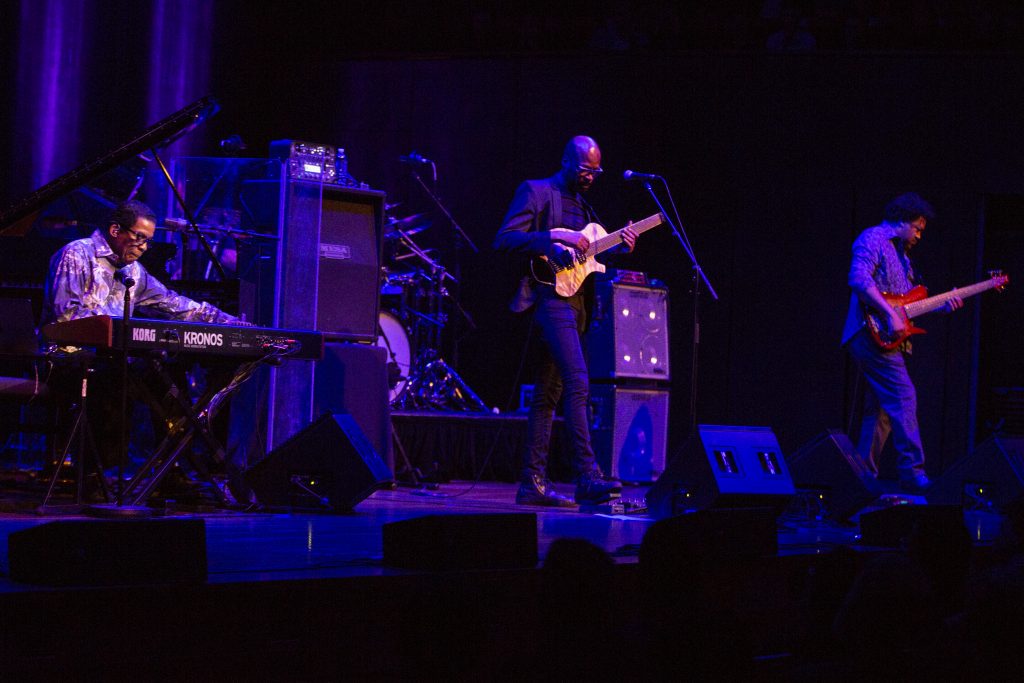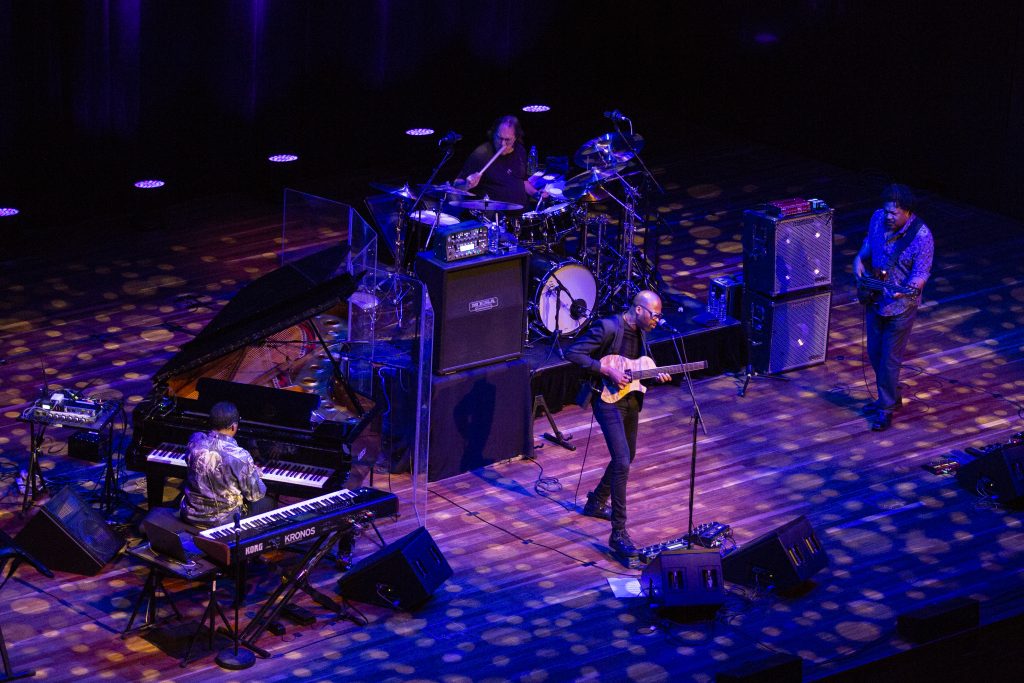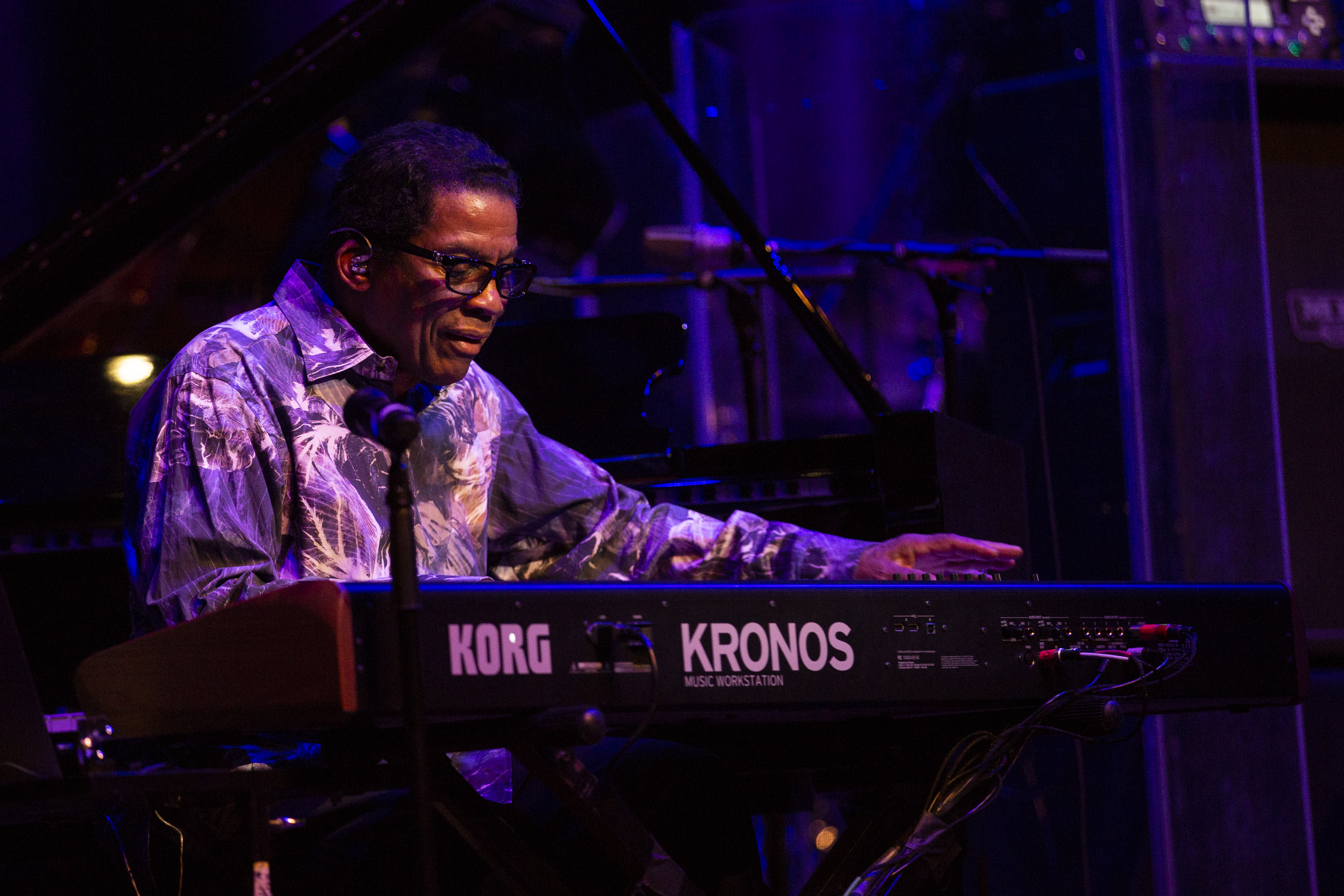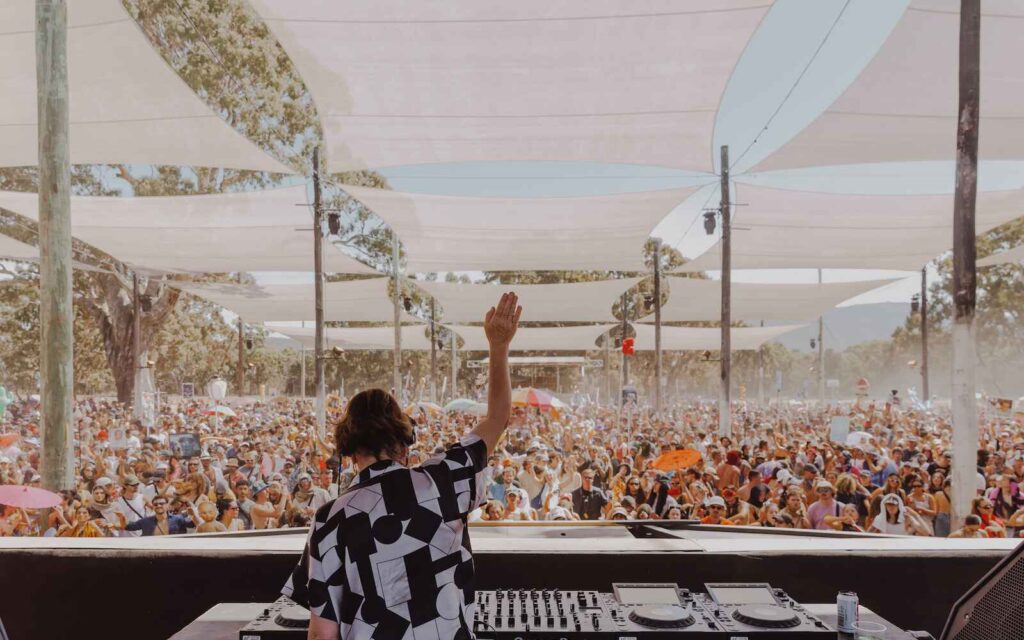Pics by BandAnna Photography
Alongside his virtuosic band, the jazz legend put on an absolute masterclass.
Much more than technical ability, of which he is not lacking, or key collaborators, among which can be counted the most revered in jazz history, musical curiosity has defined the long and rich career of Herbie Hancock.
Backed by a red hot band comprised of drummer Vinnie Colaiuta, bassist James Genus and guitarist Lionel Loueke, all of whom more than held their own on the Hamer Hall stage, Hancock’s performance at the closing night of the Melbourne International Jazz Festival revealed a musician still buzzing off of the act of creation and the infinite possibilities thereof.
Catch up on the latest music interviews, news and reviews here.
Switching between the grand piano and a Korg Kronos synthesiser, Hancock and co. played almost without pause for over two hours. The pieces formed suites that deftly flowed into one another, encompassing a wide a variety of styles, sounds and influences as can be found in his long catalogue.

While each member of the mercurial four-piece had their time in the sun, the two main soloists Loueke and Hancock occupied much of the spotlight, with the former almost stealing the show from his beaming bandleader.
Loueke pulled an astonishing array of sounds from his guitar, which, as Hancock noted when introducing the group, rarely sounded as you would expect.
His first standout moment happened early on during a solo piece, plucking notes that cascaded and repeated courtesy of his pedals, the overall effect being that of a synthesised string section. Atop this Loueke added African-inspired rhythmic singing, comprised of clicks, beats and non-words, which were then effected with a padded, Doppler effect.
Though Hancock has several widely known songs, the arrangements carefully weaved in and out of sections, with each player stepping in and out of their corner without intruding on another’s space. From this, some recognisable motifs made themselves known, such as the famous break from ‘Chameleon’.

Dipping into the widely regarded mid-’70s material, the quartet proved themselves more than adept at recreating the space and snap of the era’s funk, with Genus laying the grooves between the beats, accentuated with the occasional sustained chord or lightning quick fret-run.
Hancock’s piano playing is incredibly intuitive and precise, you could almost see his ears standing alert, taking in what his bandmates were doing while his fingers reacted at lightning speed.
Utilising a vocoder as he sang two songs towards the end of the set, we were reminded how important Hancock has been in championing new keyboard technologies, his ability to push the boundaries still seeming radical in the concert hall setting.
Elsewhere, traces of the gospel tradition could be heard in his piano playing, notably during a particularly bluesy ‘Watermelon Man’. The breadth of African-American – and thanks to Loueke’s contributions, African – musical styles contained within Hancock’s compositions have surely been key to his endurance and acclaim.
After quitting the stage, the familiar synth intro of ‘Chameleon’ announced the encore before a grinning Hancock emerged, keytar in hand. The band delivered a truly blistering take on the Head Hunters classic, Hancock playing to the front row, even including the ‘Rockit’ riff in the final moments of his solo.







